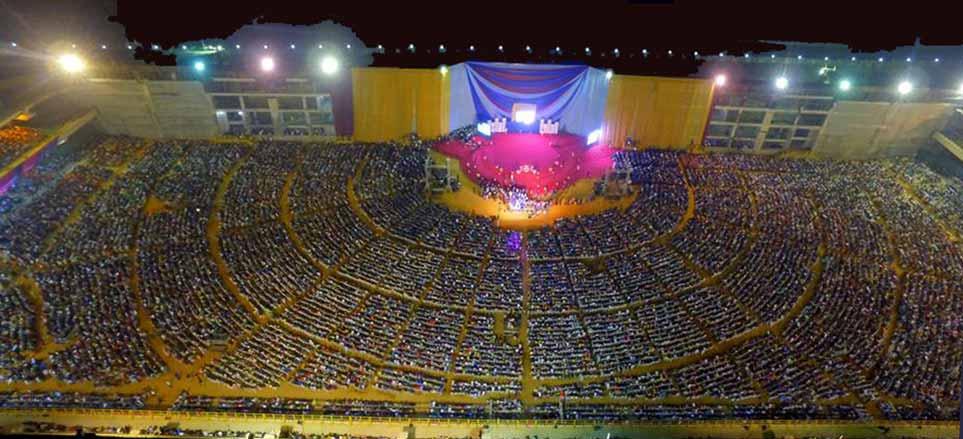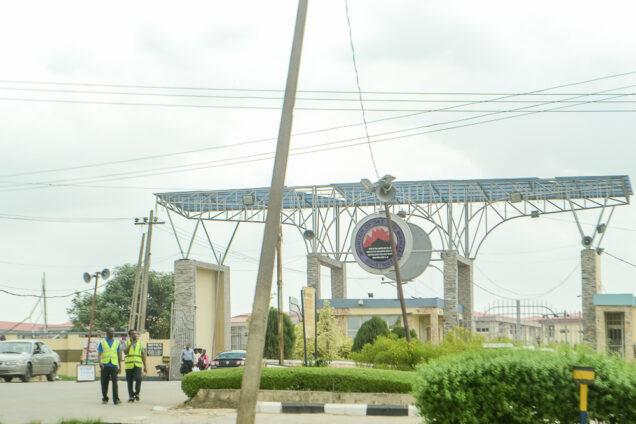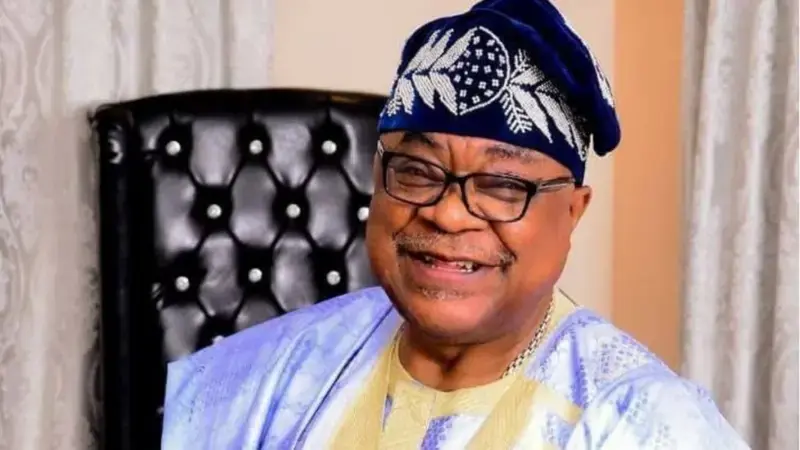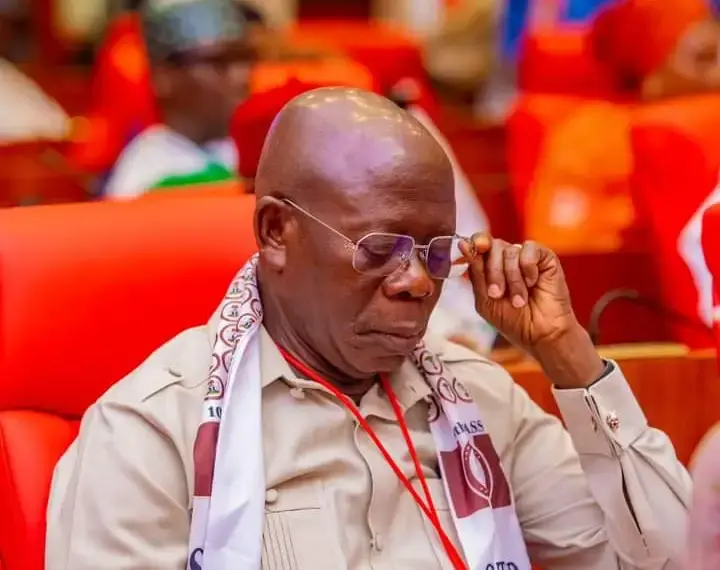Top 10 Richest Men In Yobe State

Yobe State, located in northeastern Nigeria, may be one of the country's lesser-discussed regions, but it is home to some of Nigeria’s most influential and wealthiest individuals. Despite security challenges, the state has experienced steady economic growth in sectors like agriculture, politics, real estate, and public service—thanks in large part to the strategic contributions of its most successful sons and daughters.
In this blog post, we explore the top 10 richest men from Yobe State in 2025, diving into their backgrounds, industries, estimated net worth, and the philanthropic efforts that have positively shaped the region. These men not only represent personal financial success but also stand as pillars of development, growth, and inspiration in the state.
1. Mai Mala Buni – $50 Million
Mai Mala Buni, the serving Governor of Yobe State, leads this list with an estimated net worth of $50 million. Before entering the political arena, Buni was a successful entrepreneur, particularly in the construction and real estate sectors. His leadership as the National Secretary of the All Progressives Congress (APC) raised his profile nationally and brought opportunities for economic advancement.
Buni’s leadership style emphasizes development, and he has spearheaded projects that uplift education, healthcare, and rural infrastructure in Yobe State.
Sectors:
-
Politics
-
Real Estate
-
Construction
Contributions:
-
Rural development
-
Education reform
-
Healthcare infrastructure
2. Ahmad Lawan – $50 Million
Ahmad Lawan, a former President of the Nigerian Senate and current Senator representing Yobe North, is equally ranked at the top. With decades of experience in politics and a doctorate in Remote Sensing and Geographic Information System, Lawan has translated his influence into wise investments and advisory roles that have boosted his net worth.
Sectors:
-
Politics
-
Public Administration
-
Strategic Investments
Contributions:
-
Scholarship foundations
-
Advocacy for northern development
-
Educational investments
3. Usman Alkali Baba – $40 Million
Usman Alkali Baba, former Inspector General of Police, is not only a respected figure in national law enforcement but also a strategic investor in various sectors. His career achievements and post-retirement ventures place his estimated net worth at $40 million.
Sectors:
-
Law Enforcement
-
Real Estate
-
Investments
Contributions:
-
Security training programs
-
Community policing initiatives
-
Empowerment of retired officers
4. Laylah Ali Othman – $35 Million
Laylah Ali Othman is a dynamic businesswoman, media personality, and philanthropist. As the CEO of L Magazine and Laylah’s Interior Design, she’s made her fortune in branding, interior design, and real estate. Her rise to prominence as a female entrepreneur in northern Nigeria has made her an icon of resilience and innovation.
Sectors:
-
Media
-
Interior Design
-
Real Estate
Contributions:
-
Women empowerment projects
-
Skills acquisition training
-
Promotion of northern heritage
5. Abba Gana Tata – $35 Million
Abba Gana Tata is another powerhouse entrepreneur whose vast investment portfolio spans agriculture, hospitality, and real estate. Tata has helped modernize farming techniques across the state and has also built a chain of resorts and hotels that serve as key tourism and business hubs in northeastern Nigeria.
Sectors:
-
Agriculture
-
Hospitality
-
Real Estate
Contributions:
-
Agricultural mechanization
-
Farmer training programs
-
Community outreach projects
6. Dr. Ibrahim Geidam – $30 Million
Dr. Ibrahim Geidam, a former Governor of Yobe State and current Senator representing Yobe East, is a prominent political figure whose governance and investments have significantly shaped the region. His wealth stems from political leadership, property development, and advisory roles in private sectors.
Sectors:
-
Politics
-
Governance
-
Real Estate
Contributions:
-
Hospital constructions
-
Educational scholarships
-
Policy development for health
7. Alhaji Adamu Waziri – $25 Million
Alhaji Adamu Waziri is a seasoned politician who once served as Minister of Police Affairs. His years in national politics have afforded him access to lucrative investments in agriculture and real estate. Waziri is also known for his efforts to bridge the development gap in rural parts of Yobe.
Sectors:
-
Politics
-
Agriculture
-
Real Estate
Contributions:
-
School renovation projects
-
Rural electrification schemes
-
Public water access campaigns
8. Abba Kyari (Late) – $20 Million
Although the late Abba Kyari, former Chief of Staff to President Muhammadu Buhari, passed away in 2020, his legacy remains impactful. As one of the most powerful figures in Nigerian politics during his time, Kyari had both political and financial influence, with investments in banking, advisory, and real estate.
Sectors:
-
Politics
-
Finance
-
Government Consultancy
Legacy:
-
Restructured administrative processes
-
Advocated economic policies
-
National policy advisor
9. Musa Majakura – $15 Million
Musa Majakura is an emerging business tycoon in Yobe State with growing interests in investments, commerce, and logistics. His rise to wealth has been attributed to careful financial planning, trade partnerships, and active participation in youth development initiatives.
Sectors:
-
Commerce
-
Investments
-
Transport Logistics
Contributions:
-
Youth empowerment campaigns
-
Funding for small businesses
-
Donations to educational institutions
10. Mohammed Sani Idriss – $12 Million
Rounding up our list is Mohammed Sani Idriss, a public figure and government official known for his contributions to the educational system in Yobe State. He has served in various educational and administrative roles and is considered one of the most influential policymakers in the state.
Sectors:
-
Public Service
-
Education
-
Policy Making
Contributions:
-
Educational policy reforms
-
Funding for academic research
-
Teacher welfare initiatives
Final Thoughts
Yobe State, despite facing socio-economic challenges, is home to a number of individuals whose wealth and influence transcend regional boundaries. These men have not only built personal empires but have also actively contributed to Yobe's socio-economic development through strategic investments, philanthropy, and governance.
Their stories are not just about wealth—they reflect a deeper commitment to legacy, leadership, and community transformation. As Yobe continues to rebuild and modernize, the influence of these top richest men will remain vital to the state’s progress.
Post A Comment
Your email address will not be published. Required fields are marked *









































































































































0 Comments